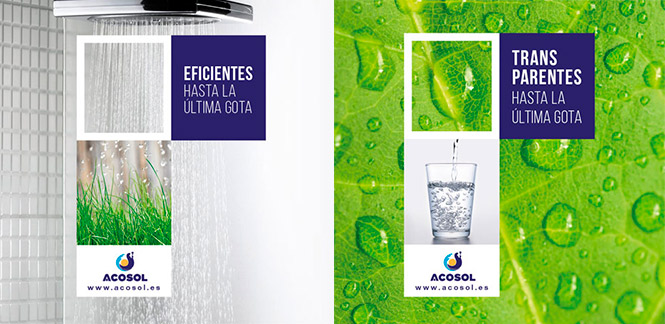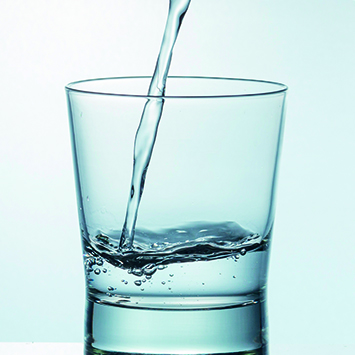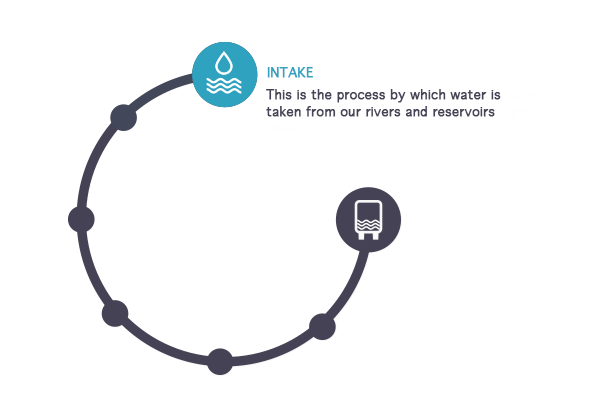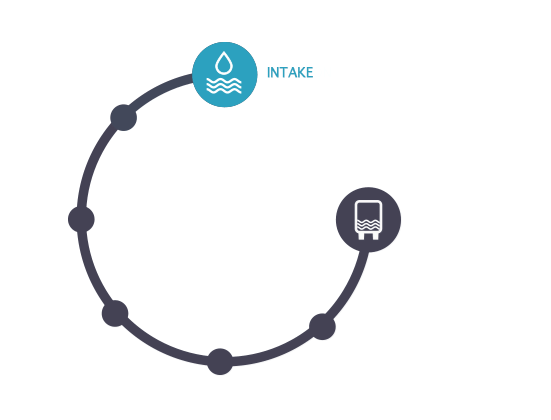Index
On the one hand, ACOSOL ensures water is delivered from La Concepción reservoir (in Istán) and the Costa del Sol desalination facility to the municipalities or housing estates that request our services. On the other hand, it also ensures that used water reaches the waste water treatment plant so it reaches the sea in perfect condition or is used to irrigate golf courses and gardens.
The treatment process is included in what is known as comprehensive sanitation, a project that encompasses not just the Costa del Sol but the province as a whole, and in future the whole of the Spanish coastline, in order to ensure our waters and beaches are kept in good condition.
The home supply service focuses mainly on housing estates and communities of neighbours outside of urban centres, small municipalities such as Istán, Casares and Ojén, a large part of Marbella and all of Mijas.
The population of the Western Costa del Sol varies hugely throughout the year, with peaks of 1.2 million people at the height of the holiday season, and always higher than the 530,000 inhabitants officially registered as living in the various municipalities, due to residential tourism numbers, which are not included in census figures.
Environment
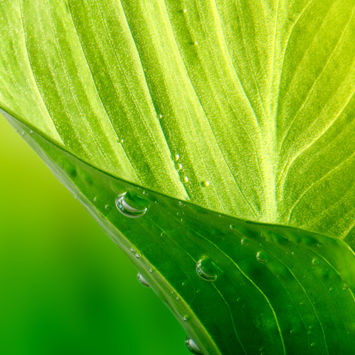
We support golf development that shows a clear commitment to the environment.
ACOSOL irrigates more golf courses using reclaimed water than any other public company in Europe. Almost 50 cubic hectometres of water were reclaimed in 2016, of which 6.32 hectometres were used to irrigate more than 700 golf holes. At the start of 2017, ACOSOL was irrigating 44 courses, with the challenge that all Western Costa del Sol facilities eventually used reclaimed water. Work is also ongoing to prepare connections for future projects.
Saving in the kitchen
1) Fill the dishwasher and washing machine to optimal load, as this can save up to 40 litres per wash cycle.
2) Did you know that a single tap can drip more than 90 litres a week? Ensure they are fully closed after using them.
3) If you have to pour water away, never do it in a dry area. Use it to water plants or the garden instead.
4) Don’t use the washing machine on half load. Every time you use the washing machine, it uses up an average of 95 litres of water, and a full load uses less than two half loads.
5) If you’re going to buy a washing machine, look for one with “ECO-PRODUCT” specifications, as this will help save electricity as well as water.
6) Each time you boil eggs, keep the water for your plants, as they’ll benefit from the nutrients released by eggshells.
7) Keeping a bottle of water in the fridge avoids having to let the tap run for a while each time you want cold tap water.
8) Fill a bowl with water to wash fruit. If you wash fruit under the tap you’ll be using double the amount of water.
9) And don’t use running water to defrost food. Take it out of the freezer the night before or use the microwave.
10) When washing up, fill the sink to wash dirty dishes, and when rinsing, reduce the tap pressure to what you actually need
Saving in the bathroom
1) Place a bottle full of water in the toilet cistern, as this will save up to two litres of water every time you flush.
2) Avoid flushing the toilet more than necessary. A sheet of toilet paper, an insect or the husk of a sunflower seed are not sufficient reason to flush the toilet and waste a cistern full of around 10/12 litres of water.
3) Having a daily five-minute shower rather than a bath can save up to 400 litres of water a week.
4) Install a shower with a rain shower head. This can help save a lot of water.
5) Check the toilet cistern by adding food colouring to the tank. If after half an hour the colour appears in the bowl, this means you have a leak.
6) Don’t leave the tap open while shaving or cleaning your teeth. If you clean your teeth three times a day, with the tap open you’ll be wasting more than 10,000 litres a year.
Watering and irrigation advice
1) Use water from the fish tank to water your plants, as it is very rich in nitrogen and phosphorus, both of which are considered excellent fertilisers.
2) If you water your garden, don’t leave the hose unattended. Use a kitchen timer to remind you when to turn it off.
3) Don’t over-water your garden. Every four or five days in summer, and every two weeks in winter, is enough.
4) For your garden, use indigenous plants. Certain species need to be continually watered, whereas others survive needing much less care.
5) For small gardens, drip irrigation systems can be installed, which not only saves water but saves you time to do other things.
6) Additionally, try to water the plans in the early morning or at the end of the day, as this reduces water loss through evaporation.
7) Check the connections, couplings and hoses of your watering system on a regular basis. They may contain a serious leak.
Outside the home
1) Try to wash your car at an automatic car wash, as they are designed to make an effective use of water.
2) If you do decide to wash your car by hand, it’s best to park on grass, to make the most of the water that you use.
3) Be proactive in saving water, advising others when you see inappropriate water use.
4) Follow the campaigns and advice of your water company, so that we’re all proactive in saving this precious resource.
Education

ACOSOL regularly and consistently implements initiatives aimed at schoolchildren to help reduce water consumption. Because the children of today are the grown-ups who tomorrow will use our resources responsibly, and who will also be tourist in our beaches and our towns, with an environmental commitment acquired from infancy.
R&D&I
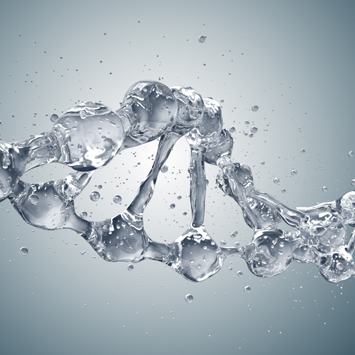
Acosol is always actively involved in ongoing research, developing new technologies and procedures, and always innovating.
In recent years we have developed the following projects:
SUSTRATEC: With support from the European Union and as a partner of the company VALORA, we have researched, developed and produced an innovative new type of soil, the composition of which is based on soils from our waste water treatment plants, where it is grown an applied vegetation that is able to capture the pollution from diesel engines (nitrous oxide), which is highly noxious, and which is causing problems to large cities as it poses a major health risk.
INVERSE OSMOSIS AND ULTRAFILTRATION PILOT PLANT: With support from the European Union, and as partners with HIDRANAUTICS and ACUAMED, this is a project that can be classed as a prototype of a new kind of desalination plant that it’s more efficient than the current system, the technology and design of which is already more than 20 years old.
They are all subject to pertinent confidentiality agreements, which prevent us from revealing more about them until the expected objective results have been obtained, or until the parties agree to release partial results or other relevant information.
Campaigns

At ACOSOL we are committed to saving and the responsible use of our natural resources. Throughout the year, therefore, we carry out awareness-raising campaigns among our subscribers and elsewhere on issues such as saving water, recycling, waste management, drought and healthy habits.
Green fields with a green conscience.

https://www.youtube.com/embed/Bi0H9eJ8320
Eficientes hasta la última gota
